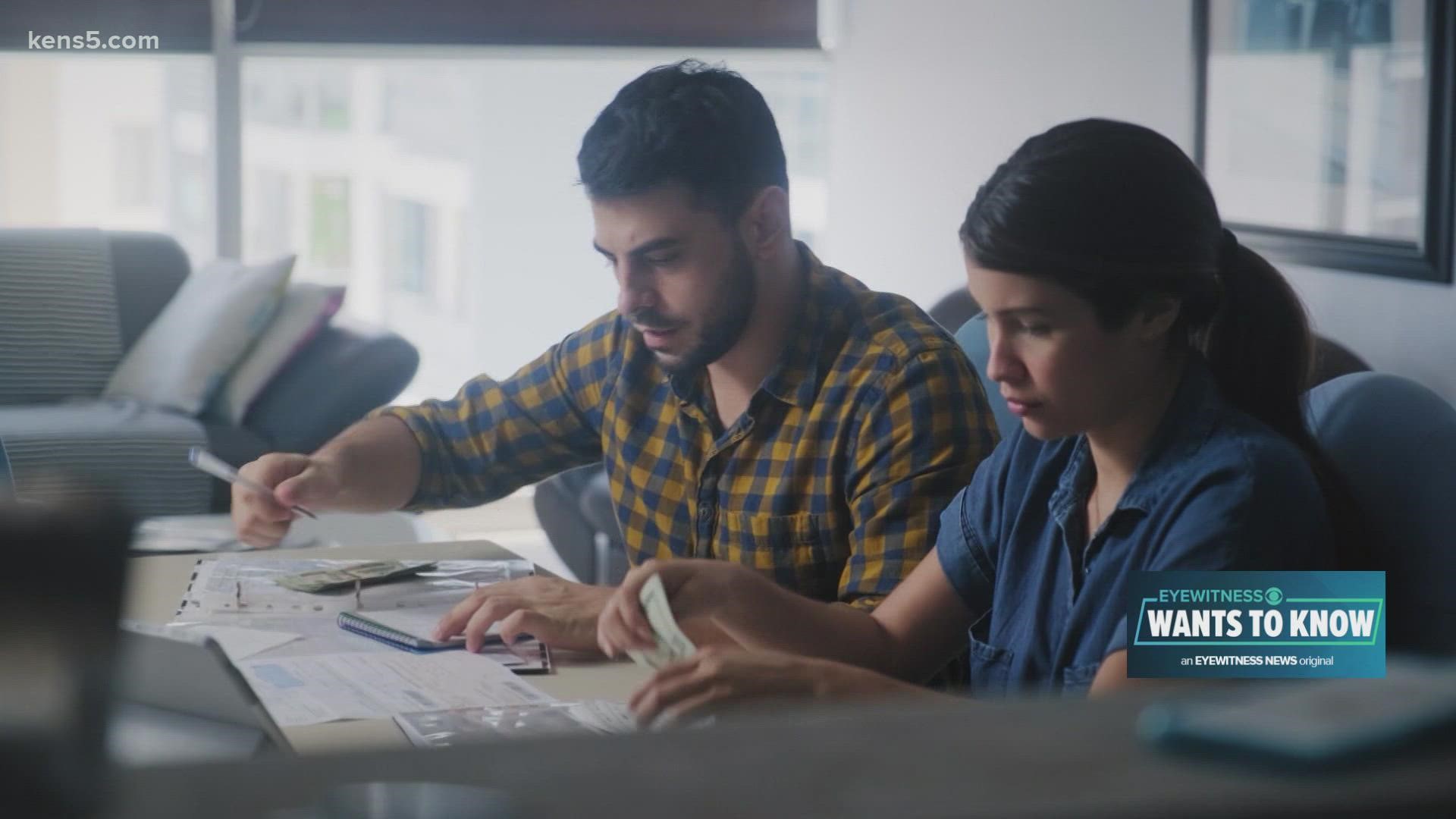SAN ANTONIO — Physical and emotional cheating can wreck a relationship, but being financially unfaithful can be just as harmful. Money is a tough topic, one some couples avoid at all costs.
“People would rather talk about their weight, their health, their political views, their religious views,” said Ted Rossman, a senior credit card industry analyst with CreditCards.com. “All of that potentially controversial stuff is easier to talk about for most people than credit card debt.”
“There are so many levels of intimacy in a relationship,” said Morris Armstrong, a financial advisor with Armstrong Financial Strategies. “Talking about money, it might have a big taboo attached to it.”
Financial infidelity is when you lie about money.
“The most common is secret spending,” Rossman said.
There is also secret debt, secret credit cards, and secret savings accounts. Not revealing them is not about the money but about trust.
“Most people are very forgiving about financial missteps, but what they’re not as forgiving about is feeling like they’ve been tricked or deceived, especially for a long period of time,” Rossman said. “The longer this secret goes on, the worse it’s going to be when it comes out because then the other person’s going to say: ‘Well, wait a second, I thought I really knew you. What else am I missing?’ It’s really hard to get that trust back.”
Signs of financial infidelity include unexplained withdrawals from accounts, expensive purchases, and unfamiliar credit card or bank statements.
Opposites may attract. It does not mean spenders and savers have to break up.
“They can be very successful, just like those very successful relationships where politically they’re opposites,” said Armstrong. “But you have to be aware of it and you have to be open about it and you have to be willing to compromise a bit.”
Have conversations about finances early and often in a relationship. You do not need to talk about money on the first date, but do not wait too long to discuss it.
“Most people wait on those things until they move in together,” Rossman said. “I think that’s a mistake, partially because I’m a big advocate for financial transparency and openness. I also think it’s practical, like if you don’t know your partner’s credit score or their debt until you apply for a mortgage or an apartment lease, they may have some financial skeletons in their closet and it’s better to know early for peace of mind so that you can work on it and set your expectations.”
Armstrong said you can also get a general sense of a person’s money style by looking at their lifestyle.
“You may be able to pick up some clues as to how they feel about money and assets,” he said. “The person who always insists on always going to very expensive restaurants every single time, that may not be your style. It could be a sign. People who are flashy dressers all the time, the latest styles, or the big cars. There are little signals you can pick up on.”
Yet, he said it is best to just ask directly how they prefer to handle money.
“Do you like to spend a lot on vacations?” Armstrong said. “Do you like to dine out a lot? Why do you believe in saving for the future? Are you afraid of debt?”
Bring it up by talking about how you both can make money work best for the life you want together.
“Rather than looking at a budget as a way to deny yourself and say we can’t buy this, we can’t buy that, we can’t have fun, let’s frame it more as what do you want to achieve?” Rossman said. “You know, what do we really want to free up money to do? Is it to buy a house? Buy a car? Pay off debt? Save for retirement? If you frame it more positively you get both people buying into it more.”
Couples need to find a money strategy that works best for them. For some, it is combining their accounts. If that does not work for you, Rossman said to try a “yours, mine, and ours” accounts.
“Maybe you have a certain pot of money that’s comingled for joint expenses and goals and then maybe each member of this couple gets some fun money that they can spend, no questions asked,” he said. “I think that’s actually a healthy solution for a lot of people.”
It is a tough talk to have, so sitting down with a financial advisor can also help couples figure out a financial strategy for their future.
If you have a question for Eyewitness Wants To Know, email us at EWTK@KENS5.com or call us at (210) 377-8647.

